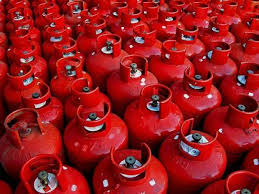The arteries of justice are essential conduits that guarantee the smooth flow of accountability and fairness in Nepal's complex legal system. But like many other judiciaries, the Nepalese court faces problems that are comparable to an artery burst—critical problems that, if left untreated, might obstruct the flow of justice. Any healthy democracy must prioritize the pursuit of justice, but the Nepalese court has encountered some difficulties that are akin to a "arterial burst"—a severe rupture that requires immediate treatment.
Arterial Challenge: Pervasive Legal Backlogs and Delays:
The significant backlog and delays in legal cases that Nepal's criminal justice system suffers are a serious threat. The slow speed at which cases are resolved creates a systemic bottleneck that hinders the effective administration of justice. To sustain public confidence in the legal system and to provide prompt remedy, the arteries of the courts must be cleared. The inexorable rhythm of backlogs in legal cases frequently plagues the courtroom, which is supposed to be a fortress of prompt justice. A backlog of cases strains the court system, making it difficult to deliver decisions effectively and keeping litigants in a condition of protracted expectation.
Hemorrhage of Integrity: Corruption Within the Legal Veins:
A concerning problem that resembles a judicial systemic bleeding is the widespread corruption that undermines the integrity of legal procedures. The core of justice is undercut by claims of bribery, favoritism, and unethical behavior among judges and other authorities; thus, immediate action is required to stop the corruption. Corruption obstructs the free passage of justice through the judicial system in a covert manner. The judiciary's integrity is under threat owing to allegations of bribery, unethical behavior, and undue influence, which would impede the administration of justice and erode public confidence in the system.
Thrombosis in Accessibility: Unequal Access to Justice:
Judicial Council's indifference to responsibilities exacerbates...

Inequality of access is a thrombotic problem to Nepal's judicial system. Due to a lack of legal knowledge, geographical restrictions, and financial limitations, underprivileged and rural groups frequently find themselves on the wrong side of the access gap. In order to address this issue, measures must be taken to guarantee that justice is distributed equally across society. The uneven distribution of legal resources clogs the channels of justice access in a nation as varied as Nepal. The inability of rural and vulnerable groups to access justice is a result of obstacles such as the lack of legal knowledge, remote location, and financial limitations.
Aneurysm of Transitional Justice: Challenges in Reckoning with the Past:
Unresolved human rights breaches are a persistent problem caused by past wars in Nepal. The Truth and Reconciliation Commission (TRC) and the Commission on the Investigation of Enforced Disappeared Persons (CIEDP) represent the transitional justice process, which has come under fire for alleged inefficiency. In order to resolve past complaints and provide a strong basis for justice, the judicial arteries must cure these aneurysms. Transitional justice procedures need to address the wounds left by the aftermath of the civil strife in Nepal. But the sluggishness of redressing human rights abuses and offering victims reparation might be compared to a clotting factor, obstructing the easy transition to a society that has been healed.
Addressing the Ailments:
Stent of Reforms: Constitutional and Procedural Interventions:
Strong constitutional and procedural changes are put into place as a stent to fortify the justice system's arteries. This entails clearing up procedural obstacles, strengthening judicial independence, and eliminating legal impediments.
Clot-Busting Technologies: Digital Transformation of the Judicial System:
Accepting technology dissolves barriers to justice by acting as a clot-buster. The court system's digital transformation has the potential to reduce backlogs, increase accessibility, and boost transparency while guaranteeing that justice is delivered effectively through more contemporary channels.
Oxygenating Legal Awareness Campaigns: Community Engagement and Education:
Acting as energizing agents, legal awareness initiatives make sure that justice reaches even the most remote regions. Programs for community participation and educational initiatives can strengthen individuals by dismantling obstacles and advancing equitable access to the judicial system.
Interventions are needed to stop a catastrophic explosion that might threaten the foundation of justice as the Nepalese courts deal with their fair share of serious issues. Nepal should fortify its legal infrastructure by implementing digital innovations, community outreach, and constitutional amendments. This will ensure that the judicial system functions smoothly, serving all citizens equally and keeping the heart of an accountable and just society beating. The Nepalese judiciary's vascular burst of justice needs prompt attention and calculated remedies. It is critical to address the arterial burst of justice as Nepal deals with issues in its legal system. Nepal can guarantee a strong and healthy flow of justice by strengthening the system against backlogs, corruption, unequal access, and sluggish transitional justice procedures. The country may heal the rifts and preserve the integrity of justice within its judicial system with the use of technology breakthroughs, community outreach programs, transparency laws, and constitutional amendments.



































